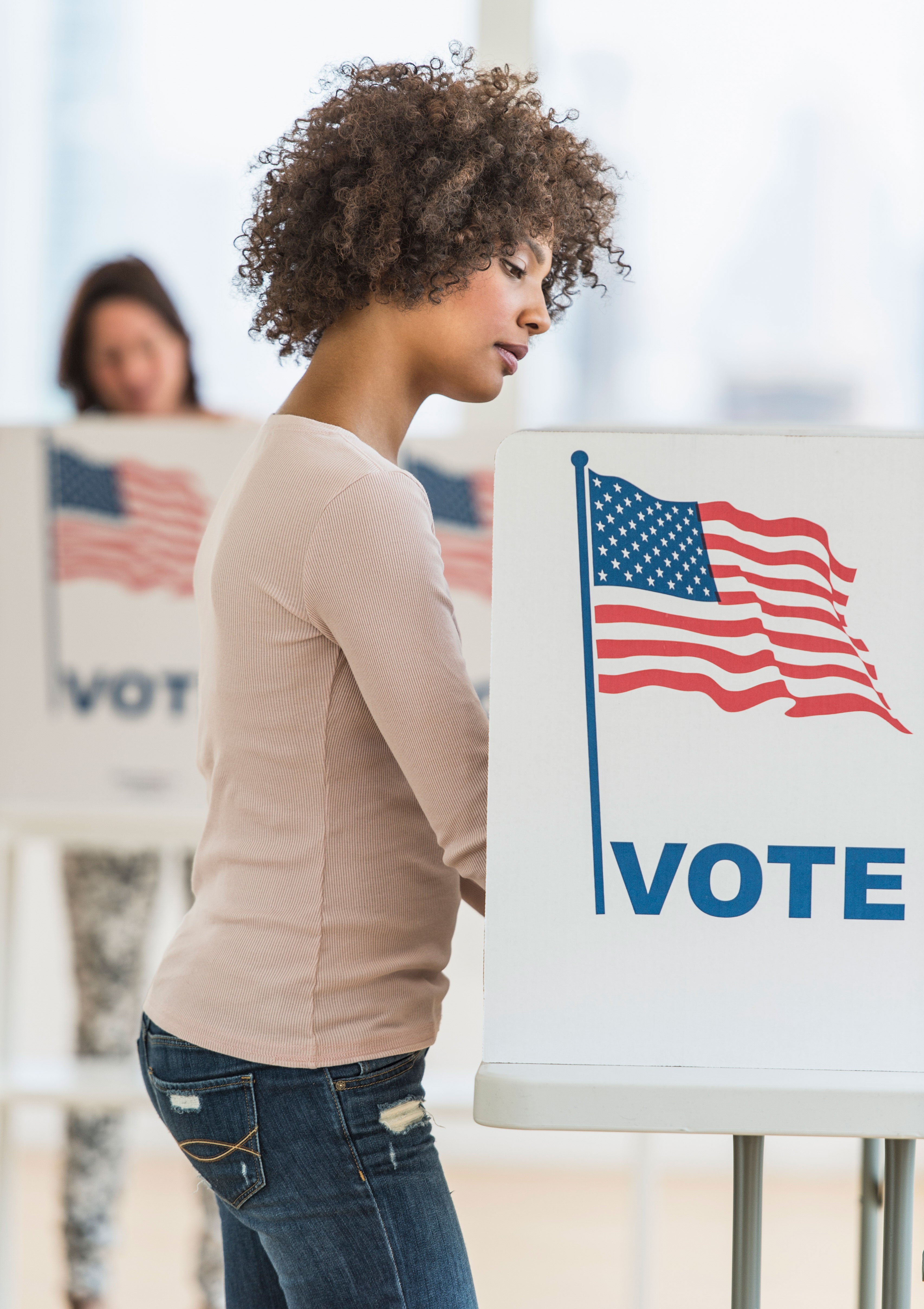
In 1962, Malcolm X spoke truth on the reality of being a Black woman in America.
“The most disrespected person in America is the Black woman. The most unprotected person in America is the Black woman. The most neglected person in America is the Black woman.”
Fifty-four years and nine presidents later, not much has changed on this front. We’ve made progress on policies surrounding affirmative action, greater access to jobs and a narrower gender pay gap, sure. But the loudest voices for Black women are still not those of Black women. For most of my life, and the lives of other women of color, the conversation surrounding our livelihoods has been hijacked by voices and bodies foreign to us.
Subscribe to our daily newsletter for the latest in hair, beauty, style and celebrity news.
Complicating this issue is the fact that our identities are too often split in the public narrative between being a person of color and being a woman, ignoring our intersectionality and the struggles that come with it. I’m often forced to choose between listening to and supporting white women or Black men that don’t properly represent my voice, my narrative or my community.
It’s time for young Black women across the country to stand up and make our voices — and our votes — heard.
It’s time for us to speak truth to power.
Although counterintuitive, the one respite in this experience has been the ballot box. For me, walking into a voting booth has become my opportunity to not only say, “Hear me, I am woman!” but also, “Black and proud!” By casting my ballot, I can tell a cohesive narrative about myself without splitting my identity. Standing on the shoulders of giants like Ida B. Wells, Sojourner Truth and Annie Lee Cooper, I am the strongest, loudest Black woman I can be when I vote.
Most Americans see our elections in a binary form — a choice between two candidates for president. But this view ignores the thousands of state and local candidates — many of them Black women — on the ballot across the country. It ignores the candidates for local office who have far more control over our broken criminal justice and education systems — systems that we have the power to fix for the next generation of young Black women.
I understand why some Millennials feel disillusioned with politics. We’re the most diverse generation in history, but when I turn on cable news or go on Twitter and look at the candidates prominently featured, too often I don’t see anyone who looks like me. But staying silent, not registering, not voting — that won’t change the system, and it certainly won’t elect more champions who hear us and speak for us.
This year, 82 million Americans live in states in which marijuana legalization is on the ballot this year. Over 21 million live in states that could vote to increase the minimum wage. And 50 million residents will have the chance to decide on additional gun control regulations. If these issues matter to you, but you aren’t registered to vote, what are you doing?
When a narrative is continually written for you by people who aren’t you, you must grab and force opportunities that allow you to insert your voice into the conversation — demand your seat at the table. This year has seen an explosion of issues specifically impacting the lives of young women of color. We are leading the Black Lives Matter movement and fighting for comprehensive immigration reforms that keep our families together. The November election isn’t the time to disengage; it’s time to reengage.
It’s time to reengage on community policing and criminal justice reform. It’s time to reengage on college affordability and public education. It’s time to reengage on good paying jobs and paid family leave. It’s time to reengage on equality and justice.
The ballot box is our opportunity to elect leaders who will fight for our vision of a just and inclusive future and decide issues that will impact our lives, our community and our world. When you vote, you don’t have to worry about making yourself small, quiet or secondary for anyone. You are the voice — the loudest, most passionate voice — when you vote.
Change may feel incremental, but change that affects you won’t happen at all if you aren’t there to force it.
When Beyoncé tells us to get in formation, she’s talking to you. She’s talking to all of us. She’s talking to young Black women across the country who need to stand up, get loud and make our voices heard. Because staying home isn’t a protest. As Florynce Kennedy said, “You can’t dump one cup of sugar into the ocean and expect to get syrup. If everybody sweetened her own cup of water, then things would begin to change.”
Go to rtvote.com/ourvotecounts to get registered and speak your truth at the ballot box.
Shaneice Simmons is Rock the Vote’s Special Projects Manager, where she leads the planning and coordination of special events, marketing, and field operations. Shaneice received her B.A. in Communication with a concentration in Public Relations at the University of North Carolina at Charlotte in 2014. She has a passion for pop culture and working on social issues that will shape our future.
